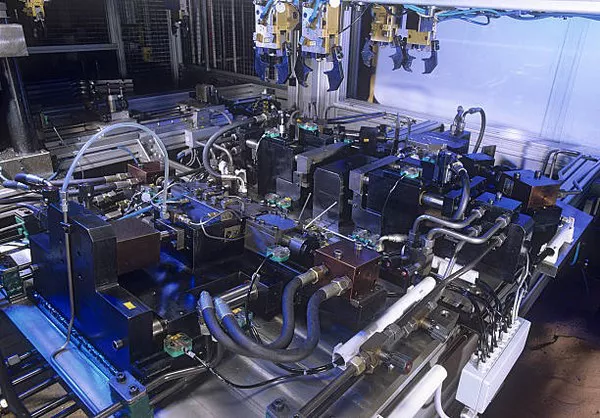In an era marked by a growing awareness of the environmental impacts of traditional energy sources, the quest for alternative and sustainable energy solutions has gained significant momentum. One such innovation that has captured the imagination of many is the concept of “fuelless generators.” Fuelless generators promise a revolutionary approach to energy generation, one that doesn’t rely on conventional fuel sources, such as fossil fuels or renewable resources like solar and wind. But are fuelless generators a genuine, practical reality, or are they merely a tantalizing dream? In this article, we will explore the concept of fuelless generators, their scientific basis, and the current state of research and development in this field.
Defining Fuelless Generators
Fuelless generators, also known as perpetual motion machines or free energy devices, are devices that claim to generate electrical energy indefinitely without the need for an external energy source or fuel. These machines are often touted as the Holy Grail of energy generation, promising to provide a constant and limitless supply of power without any associated environmental impacts or energy costs.
The Science Behind Fuelless Generators
The idea of fuelless generators is rooted in the concept of perpetual motion, which has fascinated scientists and inventors for centuries. Perpetual motion refers to the notion of a machine that can operate indefinitely without any external energy input. However, the laws of thermodynamics, specifically the first and second laws, pose significant challenges to the feasibility of perpetual motion.
The First Law of Thermodynamics: Also known as the law of conservation of energy, it states that energy cannot be created or destroyed; it can only change forms. In practical terms, this means that any device aiming to generate energy must obtain it from an external source.
The Second Law of Thermodynamics: This law dictates that energy naturally tends to disperse and move from a higher state of order to a lower state of order. It also implies that no machine can have 100% efficiency, as some energy will always be lost to heat or other forms of waste.
These fundamental laws of physics cast doubt on the possibility of fuelless generators. To produce energy continuously without an external source, such generators would need to operate perpetually, violating these established principles.
The Search for Fuelless Generators
Despite the scientific challenges and skepticism surrounding fuelless generators, inventors and researchers continue to explore this field, motivated by the potential benefits of such a technology. Over the years, various prototypes and concepts have been proposed, each claiming to offer a unique solution to the problem of perpetual energy generation.
One notable example is the “Perendev Magnetic Motor,” which gained attention in the early 2000s. The Perendev motor claimed to harness magnetic forces to generate energy continuously. However, the device faced significant scrutiny and skepticism from the scientific community, and the company behind it ultimately failed to deliver a working product.
Another concept that has attracted attention is “Zero-Point Energy” or “Vacuum Energy.” According to quantum field theory, the vacuum of empty space is not truly empty but is filled with fluctuating energy. Some researchers have suggested that it might be possible to tap into this vacuum energy and convert it into usable electrical power. While the idea is intriguing, it has yet to be realized in a practical and scalable manner.
The Challenge of Overunity
One common term associated with fuelless generators is “overunity.” Overunity implies that a machine can produce more energy than it consumes, seemingly defying the laws of thermodynamics. Many inventors and enthusiasts argue that overunity is possible, but it remains a contentious and unproven claim. The scientific consensus remains that achieving overunity is unlikely due to the fundamental thermodynamic limitations.
Prominent Challenges and Criticisms
The pursuit of fuelless generators faces numerous challenges and criticisms, including:
Lack of Peer-Reviewed Research: Many claims of fuelless generators lack rigorous, peer-reviewed scientific research to support their feasibility. This absence of credible research has led to widespread skepticism in the scientific community.
Perpetual Motion Fallacy: The idea of perpetual motion machines has been a historical source of fraud and pseudoscience. Inventors have frequently made unverified claims to secure funding or attention, only to fail in delivering a working device.
Violation of Thermodynamics: As mentioned earlier, fuelless generators must overcome the fundamental laws of thermodynamics. The burden of proof falls heavily on those who claim to have achieved overunity.
Lack of Commercial Success: Despite various prototypes and concepts, no fuelless generator has achieved widespread commercial success or recognition. This raises doubts about their practicality and reliability.
Conclusion
While the idea of fuelless generators is undeniably captivating and inspiring, the scientific community remains highly skeptical of their feasibility. The fundamental laws of thermodynamics, which have withstood rigorous testing and scrutiny, present formidable obstacles to the creation of perpetual motion machines or overunity devices.
In the quest for cleaner and more sustainable energy sources, it is essential to focus on well-established, practical, and proven technologies, such as solar, wind, hydroelectric, and nuclear power, to transition away from fossil fuels. These technologies are not only consistent with the laws of physics but have already made significant contributions to reducing our carbon footprint and addressing environmental concerns.
The dream of fuelless generators should not discourage innovation but rather serve as a reminder of the critical importance of rigorous scientific inquiry and skepticism. Extraordinary claims require extraordinary evidence, and until such evidence is provided, it is essential to rely on established energy sources and continue the pursuit of sustainable solutions within the boundaries of known scientific principles.

